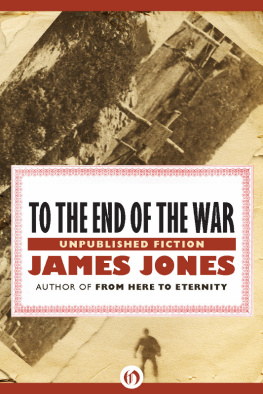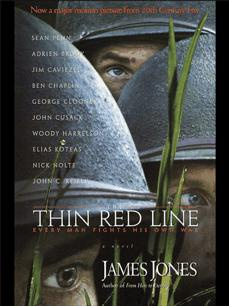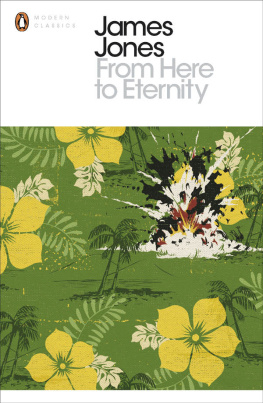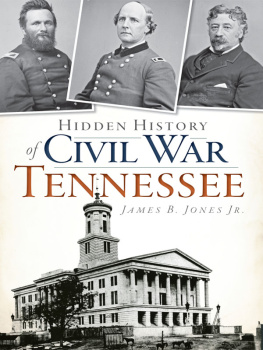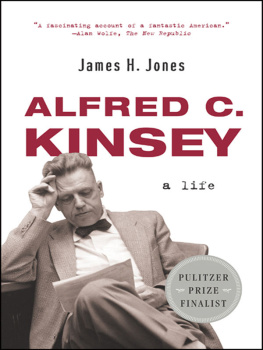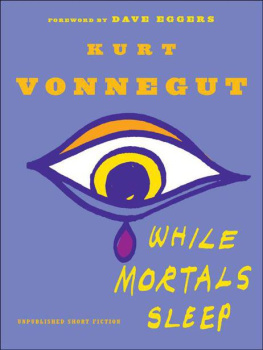James Jones - To the End of the War: Unpublished Fiction
Here you can read online James Jones - To the End of the War: Unpublished Fiction full text of the book (entire story) in english for free. Download pdf and epub, get meaning, cover and reviews about this ebook. year: 2011, publisher: Open Road, genre: Detective and thriller. Description of the work, (preface) as well as reviews are available. Best literature library LitArk.com created for fans of good reading and offers a wide selection of genres:
Romance novel
Science fiction
Adventure
Detective
Science
History
Home and family
Prose
Art
Politics
Computer
Non-fiction
Religion
Business
Children
Humor
Choose a favorite category and find really read worthwhile books. Enjoy immersion in the world of imagination, feel the emotions of the characters or learn something new for yourself, make an fascinating discovery.
- Book:To the End of the War: Unpublished Fiction
- Author:
- Publisher:Open Road
- Genre:
- Year:2011
- Rating:5 / 5
- Favourites:Add to favourites
- Your mark:
- 100
- 1
- 2
- 3
- 4
- 5
To the End of the War: Unpublished Fiction: summary, description and annotation
We offer to read an annotation, description, summary or preface (depends on what the author of the book "To the End of the War: Unpublished Fiction" wrote himself). If you haven't found the necessary information about the book — write in the comments, we will try to find it.
To the End of the War: Unpublished Fiction — read online for free the complete book (whole text) full work
Below is the text of the book, divided by pages. System saving the place of the last page read, allows you to conveniently read the book "To the End of the War: Unpublished Fiction" online for free, without having to search again every time where you left off. Put a bookmark, and you can go to the page where you finished reading at any time.
Font size:
Interval:
Bookmark:

Unpublished Stories by James Jones
Edited and with Introductions
by George Hendrick

To My Father
Nothing in his life
Became him like the leaving it; he died
As one that had been studied in his death
To throw away the dearest thing he owed.
As t were a careless trifle.Macbeth
FROM THEY SHALL INHERIT THE LAUGHTER TO TO THE END OF THE WAR
JAMES JONES WROTE TO HIS editor, Maxwell Perkins, about his first, unpublished novel, They Shall Inherit the Laughter: Laughter was largely autobiographical and I had a readymade plot and characters who followed it; all that I had to do was heighten it and use my imagination. He wrote the truth; he used his own life in a story set during a dramatic period when World War II still raged and he went over the hill, returning to his hometown, Robinson, Illinois. Almost every character in the novel was based on someone he knew, or knew about, in East-Central Illinois.
A soldier named James Jones went AWOL, probably November 1, 1943, and went back to Robinson, where he had been born in 1921. His grandfather George Jones had once lived on a nearby farm but became prosperous after oil was discovered on his property. He moved into Robinson, studied law, established a practice, and became sheriff of the county for four years. He was a leading citizen and moved his family into a three-story Southern-style mansion.
George Jones was a religious man, a Methodist, a teetotaler, domineering. He demanded that his four sons become professionals: two doctors and two lawyers. He sent his sons to Northwestern University, where one son took his own life. Ramon Jones, father of James Jones, was destined for medicine, but he convinced his father to allow him to go into dentistry, which demanded fewer years of study, in order to marry more quickly. He married Ada Blessing in 1908, and soon established his practice in Robinson. Dr. Jones was a handsome, outgoing man, but he began to drink heavily. Ada Jones was a vain, beautiful woman, obsessed with social status. Eventually she became religious and turned to Christian Science. James Jones, deeply attached to his father, came to despise his mother, who often quarreled with her husband.
George Jones died in 1929, and the family at first was partially immune from the economic depression, which began that year, for he left a significant estate. In 1932, with the collapse of the Samuel Insull public utilities empire, where George Jones had heavily invested, the largest part of the family fortune disappeared. Dr. Jones lost his inheritance and was losing his patients since they could no longer afford dental care.
After Dr. Jones was forced to give up his house, he moved his family into rented quarters. His wife was acutely unhappy about her decline in social standing, and Dr. Jones withdrew more and more into alcoholism. In this bitterly divided family, struggling through the long depression, Jones had an unhappy, rebellious adolescence. As soon as he completed high school and turned eighteen, in 1939, he joined the Army Air Corps but eventually transferred to the Infantry and was stationed in Hawaii. His service in the peacetime army, concluding with the attack on Pearl Harbor on December 7, 1941, became the subject matter of his second novel, From Here to Eternity.
Joness personal world was shaken while he was in Hawaii; his mother died and his father committed suicide. The most positive thing that happened in this period of his life was his discovery of the novels of Thomas Wolfe, who wrote about a family much like his own. From reading Wolfe, Jones wrote, he realized that I had been a writer all my life without knowing it or having written. He began to write poetry and prose sketches.
Jones had been assigned to Company F, Second Battalion, Twenty-Seventh Infantry Regiment, which was ordered to go to Guadalcanal. The troopship he was on arrived December 30, 1942. The battles on that island were fierce, and the troops suffered from dengue fever, malaria, and other tropical diseases, and continual fear.
In an undated manuscript, he wrote, I might be dead in a month, which would mean that I would never learn to say and never get said those things which proved I had once existed somewhere. Every soldier accepted, Jones wrote in WWII, that his name is already written down in the rolls of the already dead.
Jones often told the story of a day on Guadalcanal when he killed a Japanese soldier and found in the mans billfold a picture of his wife and child. Jones then viewed war in a different way, recognizing he had obliterated a so-called enemy who was a fellow human being. He wanted to be finished with killing. Joness most dramatic retelling of the incident is in his novel The Thin Red Line.
Jones was saved from taking another mans life. On January 12, 1943, he was hit in the head by a fragment from a mortar shell. There was blood everywhere, and his glasses were shattered. Had he not been in a shallow foxhole, he would have soon been in a deeper grave.
Jones was taken to a field hospital where he stayed a week before rejoining his company. The battle for Guadalcanal was basically over then; the Japanese troops were being evacuated. The U.S. troops there expected to be sent to New Georgia in the Solomon Islands for more combat. Jones felt his luck had run out. He wrote his brother that until a soldier was hit, he was confident it would happen to other guys but not to him. Once hit, he wrote, You lose that confidence.
He was spared a landing and battles on New Georgia by another piece of luck. He was having trouble with his ankle, which he had injured playing football at Schofield Barracks. After it became increasingly difficult for him to walk, he was sent home by hospital ship, first to New Zealand for a short time and then on to San Francisco. He was then transferred to Kennedy General Hospital near Memphis, Tennessee.
At Kennedy General Hospital, he received a course of therapy and then was sent to a convalescent barracks for a month, but the treatments had to be extended and went on month after month. In the months he was hospitalized, he came into contact with large numbers of men from two battle zones: Attu and Guadalcanal.
Attu is in the fog-shrouded Aleutians off the coast of Alaska. In an attempt to retake the island from the Japanese, American troops landed on May 11, 1943. From the first, the battle for Attu was a fiasco. The practice landings for the officers and men took place on warm California beaches, giving them no worthwhile knowledge about what they would face in the fog and on the tundra of Attu. In addition, through faulty intelligence, the army believed that 500 Japanese were stationed on the island. In fact, there were 2,300.
To make matters even worse, the map available to those planning and supervising the operation showed the topography only up to a thousand yards from the shoreline. In the uncharted interior of Attu, companies were lost and wandered for days in the eternal fog.
The absolute disaster came early. The troops landed wearing ordinary winter uniforms, not suitable for the fierce winds and rain of the island. They wore leather boots, which were not waterproofed. Men had cold, wet feet, rubbed raw. Gangrene followed. Whole wards were soon filled with Attu survivors who had lost their feet. The Japanese commander decided to stage a banzai attack, said to be the first of the war, on American forces, May 29, 1943. His men had suffered large-scale casualties in the past eighteen days. He had only a thousand men who could bear arms. His men who were ill or who could not walk were ordered to kill themselves. At three a.m., the Japanese began a silent attack, bayoneting U.S. troops in their sleeping bags. Then shooting began and grenades were exploded. According to one account, once the silence was broken the Japanese were screaming, Japanese drink blood like wine.
Next pageFont size:
Interval:
Bookmark:
Similar books «To the End of the War: Unpublished Fiction»
Look at similar books to To the End of the War: Unpublished Fiction. We have selected literature similar in name and meaning in the hope of providing readers with more options to find new, interesting, not yet read works.
Discussion, reviews of the book To the End of the War: Unpublished Fiction and just readers' own opinions. Leave your comments, write what you think about the work, its meaning or the main characters. Specify what exactly you liked and what you didn't like, and why you think so.

